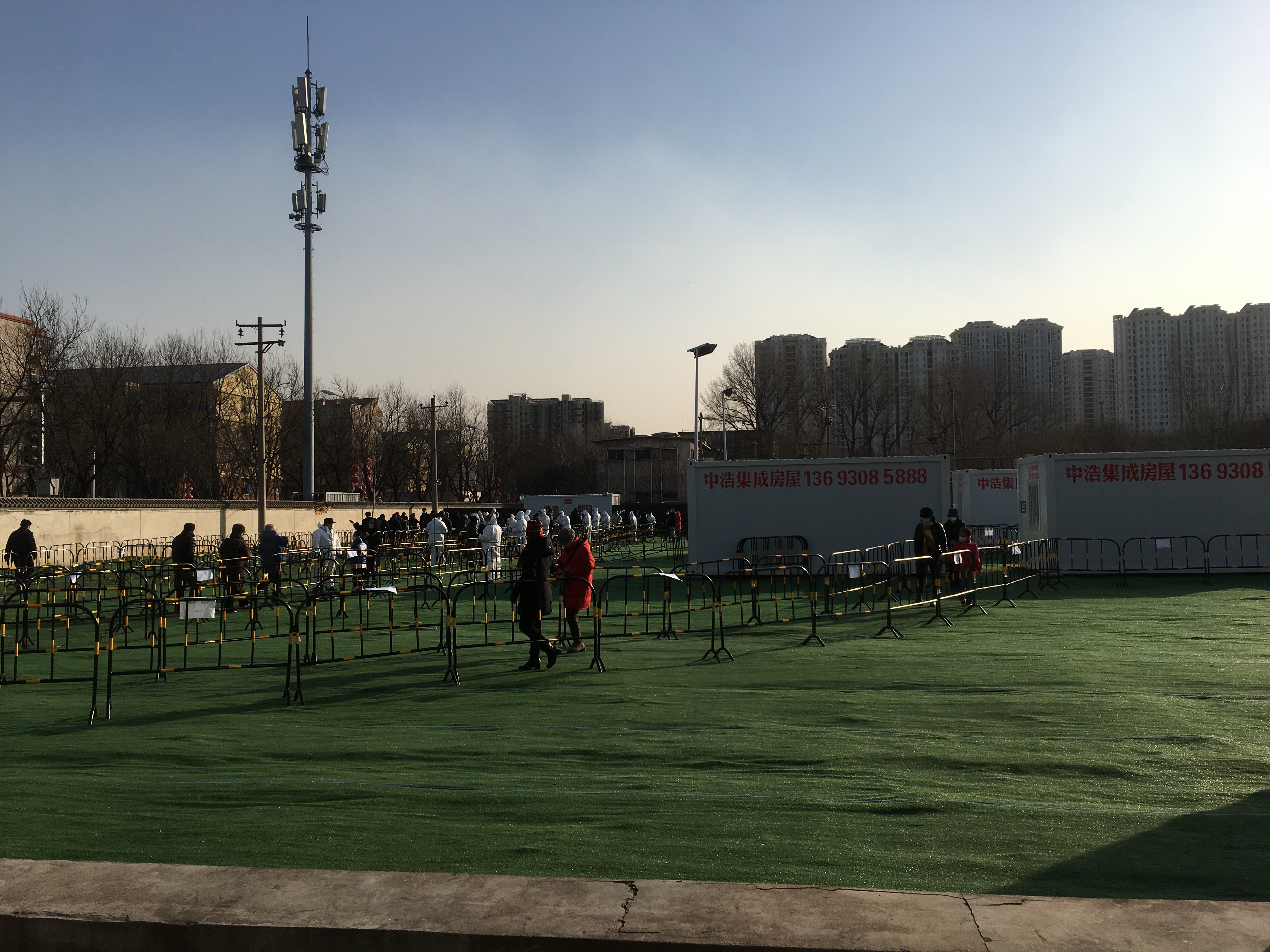
Temporary COVID-19 nucleic acid test cabins are installed in a community, in Tongzhou District, Beijing, January 26, 2021. /CGTN
Temporary COVID-19 nucleic acid test cabins are installed in a community, in Tongzhou District, Beijing, January 26, 2021. /CGTN
Over 25 of the 32 provincial-level regions of the Chinese mainland have slashed the prices of COVID-19 nucleic acid test to 80 yuan ($12.45) since late last year, as many Spring Festival travelers are required to furnish a COVID-19 negative certificate when they return to their hometowns.
In January, 13 provincial-level regions - Beijing, Tianjin, Sichuan, Fujian, Gansu, Shaanxi, Guizhou, Hubei, Heilongjiang, Hainan, Qinghai, Zhejiang and Tibet - started to subsidize COVID-19 nucleic acid testing. Nine of these provinces fixed a price ceiling of 80 yuan.
The move comes days after the National Health Commission (NHC) asked local governments to reduce the cost of COVID-19 nucleic acid test to encourage more people to go for the test and return home with a negative certificate before the Lunar New Year, which falls on February 12 this year.
By the end of 2020, due to the increase in test reagents production and collective buying by the government, over half of the provinces had already cut the price to the maximum of 80 yuan, including Guangdong, Hunan, Jiangxi, Jilin, Liaoning, Xinjiang, Shanxi and Henan.
In some regions, local disease control centers provide free-of-charge COVID-19 nucleic acid testing if there is an eruption of coronavirus cases. But for most people traveling out of business and personal reasons, they will have to go to hospitals by themselves for COVID-19 test if their destination regions require a negative nucleic acid test result.
The price now is much lower compared with March last year, with many local governments having jointly procured kits to drive down the cost. And in some provinces, the testing fee has been added to the local medical care system.

People line up for COVID-19 nucleic acid testing outside a temporary testing center in Tongzhou District, Beijing, January 26, 2021. /CGTN
People line up for COVID-19 nucleic acid testing outside a temporary testing center in Tongzhou District, Beijing, January 26, 2021. /CGTN
In southwestern China's Tibet Autonomous Region, the price of COVID-19 nucleic acid tests, including the fee for testing kits, was 200 yuan before Friday, now it has dropped to 72 yuan per person. In southwestern China's Sichuan Province, the prices fell from 120 yuan to 80 yuan in urban areas and 72 yuan ($11.20) in rural areas. In the southwestern province of Guizhou, the testing price has come down to 50 yuan ($7.78).
In provinces such as Fujian, Shaanxi and Zhejiang, medical centers and hospitals have adopted a 10-in-1 mixed testing approach to improve efficiency. Under this method, ten throat swabs are collected in one tube for testing, and once a positive result is found in the tube, those ten people are instructed to undergo isolation and testing again one by one to further identify the carrier of the positive sample.
This has further reduced the testing price. In Beijing, Tianjin and Zhejiang, such testing costs 20 yuan ($3.11) per person, while in Shaanxi and Fujian it takes just 15 yuan ($2.33).
Since the coronavirus first erupted in central China's Wuhan, China has ramped up coronavirus screenings, looking to make testing universal and available in every corner of the mainland.
In April last year, the NHC required all general hospitals and disease control institutions, at and above the county or district-level regions, to establish nucleic acid testing laboratories. Since then, the country has accelerated investment in building hundreds of testing laboratories.
The First People's Hospital of Ruzhou, a county-level city in central China's Henan Province, received five million yuan to build public health infrastructure. According to Wang Jun, director of the hospital's clinical laboratory, three million yuan went into building the laboratory. The most expensive item in the lab is the polymerase chain reaction(PCR) machine, a key testing component which costs 400,000 yuan ($62,000), Wang said.
On January 13, Guo Yanhong, a medical administration supervisor of the NHC, said that a total of 8,437 medical institutes across China have the capacity to carry out COVID-19 nucleic acid testing, which can examine 12.55 million samples a day without using mixed tests, a tenfold increase in the number of samples tested daily. She added that by taking the 10-in-1 mixed testing approach, China can test over 100 million samples daily.

